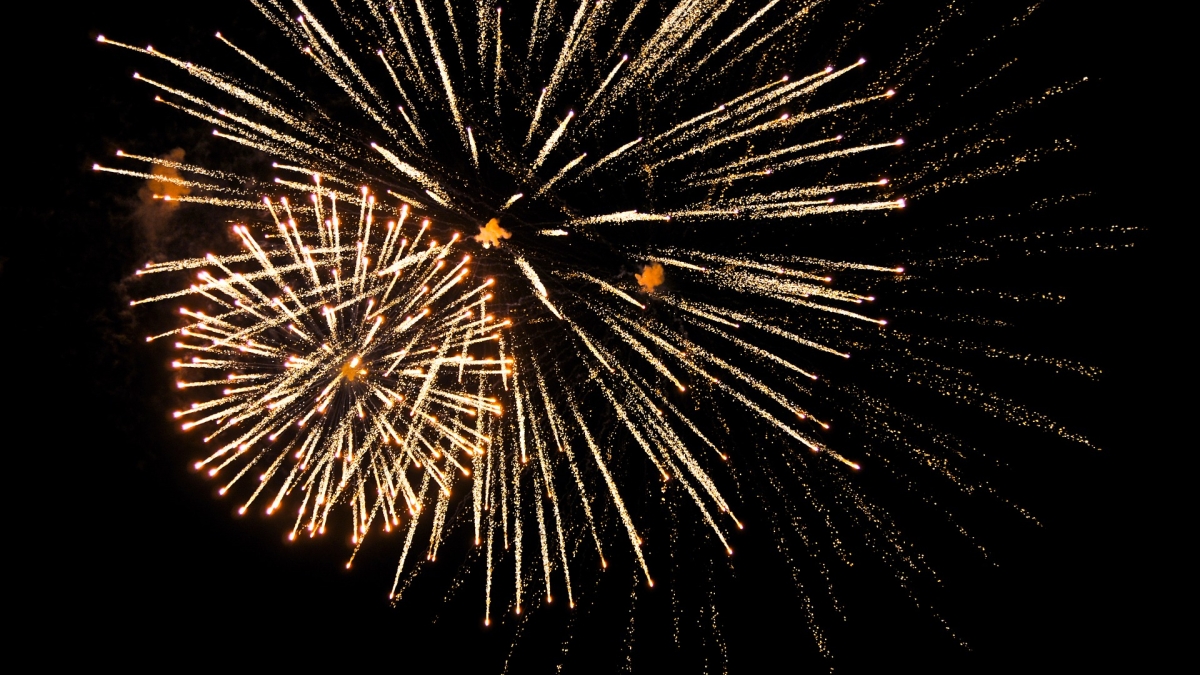American flag bunting, barbecues, Bomb Pops and John Philip Sousa: We all know the trappings of a great July Fourth celebration. But no matter your spread, playlist or decor, Independence Day just isn't complete without fireworks.
We all know the basics:
• Fireworks were invented in China.
• The first Fourth of July in 1777 was celebrated with fireworks.
• Don't start packing up the lawn chairs until after the finale.
But there's a lot more going on with our fascination with fireworks than that.
We asked some Arizona State University faculty a few burning questions about fireworks so you'll have some expert-level trivia to share with friends and family while you watch the sky this Fourth of July.
Question: Why are fireworks better in person than on television?
Answer: Sociologists would consider people who gather to watch fireworks as engaged in collective behavior. A common form of collective behavior is the crowd. Sociologist Herbert Blumer distinguished between different types of crowds based on their purpose and dynamics. A collection of people purposefully attending a fireworks show with others would be considered an expressive crowd.
In an expressive crowd, the dynamics are such that people in the audience want to be a member of the crowd, and they want to participate in expressive behaviors such as clapping, shouting and cheering. This provides a sense of belonging and a shared sense of excitement with others who are there for the same experience. The purpose of the gathering is important: On the Fourth of July, people want to share with others the celebration of independence, and for some, the sense of patriotism they feel when watching a display of fireworks with others.
— Marcella Gemelli, senior lecturer and director of online graduate programs in family and human development and sociology in the Sanford School
Q: Why does my dog get scared of fireworks?
A: Most animals (including people!) have an innate fear of loud, sudden noises. From a dog’s point of view, the unexpected banging of fireworks is no different from any other unexpected loud noise — like gunfire or explosions. The best advice is to keep dogs indoors and as far away from the racket as possible.
— Clive Wynne, professor (and canine expert) in the Department of Psychology
Q: Why do we like watching fireworks in the first place?
A: There was a famous psychology experiment done in 1962 by Stanley Schachter and Jerome Singer that has to do with emotion. In this study, researchers told people to wait in a waiting room, but before they did, they gave them an adrenaline shot. Then they had them wait for about 20 minutes. In the waiting room, there was someone else hanging out who was a part of the study, and they either acted super bummed out or really happy.
Afterward, researchers asked the unaware participant how they were feeling. The people who sat in the room with the bummed-out person reported being bummed out while the people who sat in the room with the happy person reported having a great time. It’s called the two-factor theory of emotion, and it’s still a pretty popular idea, that when we experience rushes of adrenaline with things like fireworks and haunted houses — things that produce loud explosions or bright lights — in a group setting, we tend to have similar reactions, whether that’s positive or negative.
For most of us, fireworks displays are a fun time where we get together and have fun with family and friends. So we’re probably just experiencing an adrenaline spike in our anticipation of the explosions, then reacting similarly with "oohs" and "aahs."
— Michael McBeath, professor in the Department of Psychology
Top photo by Pixabay
More Science and technology

Indigenous geneticists build unprecedented research community at ASU
When Krystal Tsosie (Diné) was an undergraduate at Arizona State University, there were no Indigenous faculty she could look to in any science department. In 2022, after getting her PhD in genomics…

Pioneering professor of cultural evolution pens essays for leading academic journals
When Robert Boyd wrote his 1985 book “Culture and the Evolutionary Process,” cultural evolution was not considered a true scientific topic. But over the past half-century, human culture and cultural…

Lucy's lasting legacy: Donald Johanson reflects on the discovery of a lifetime
Fifty years ago, in the dusty hills of Hadar, Ethiopia, a young paleoanthropologist, Donald Johanson, discovered what would become one of the most famous fossil skeletons of our lifetime — the 3.2…
